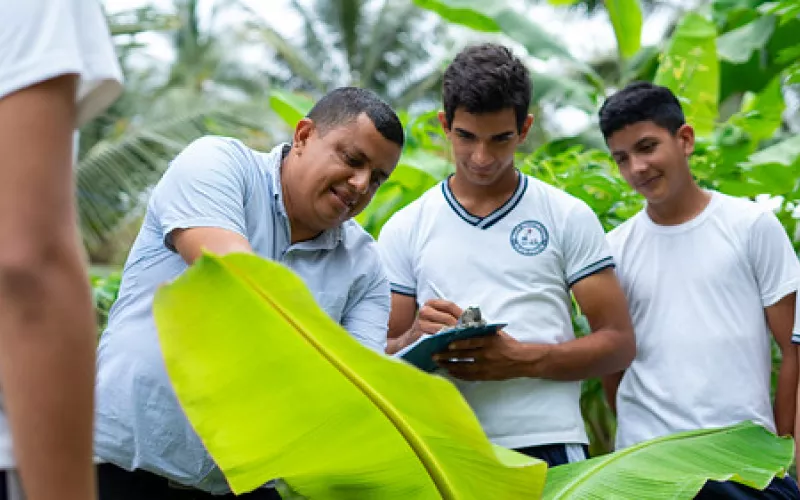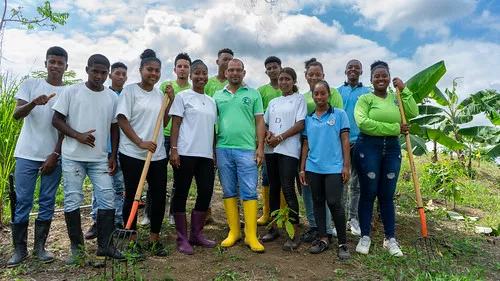Inscríbete a nuestro boletín (en Inglés)
Al inscribirte, aceptas nuestra política de privacidad
The Skilling for Sustainable Futures Flagship supports Ministries of Education in making secondary education fit for purpose and forges critical talent for the next major transformation shaping the future of work: the green transition.

Our world is home to 1.2 billion young people (15–24), the largest youth generation in history. Encouragingly, youth participation in education is on the rise, and for most young people, secondary education (general or technical vocational education and training) has become the springboard to the world of work. But geography, economic status and gender still create major barriers, and secondary education does not necessarily catapult young people to success. This is keenly felt by the one in four – or around 262 million – youth worldwide who are not in employment, education or training (NEET). Two out of three NEETs are young women.
The Skilling for Sustainable Futures Flagship supports Ministries of Education in making secondary education fit for purpose and forges critical talent for the next major transformation shaping the future of work: the green transition.
Skilling for Sustainable Futures offers a menu of three high-impact solutions for teaching, implemented in collaboration with world of work actors:
These are modified to suit national curricula and assessment systems, and to align with prioritised subjects and grades in general secondary or secondary technical vocational education and training (TVET).
For school leaders, Skilling for Sustainable Futures focuses on:
The Skilling for Sustainable Futures model is green, gender-responsive, modular, and adaptable. It can focus on one or more components, target general secondary or TVET schools, and be applied to different green·ing sectors offering opportunities for dignified and fulfilling work.
The Skilling for Sustainable Futures flagship approach has three signature characteristics:
We co-create. We contextualise the Skilling for Sustainable Futures solutions for teaching and leading and generate evidence to adapt and refine them together with frontline implementers from schools and the world of work and together with the education innovators who support them. Support materials for teachers and school leaders are co-developed and grounded in context.
We scale. We scale the Skilling for Sustainable Futures solutions for teaching and leading through motivating, and cost-effective professional development. We iterate the design, contents and delivery models, working hand in hand with professional development providers and with organisations that strengthen them. We engage in partnerships with world of work support organisations to build and leverage a network of green·ing enterprises for schools to collaborate with. By investing in evidence and creating reflection opportunities with our partners we ensure that processes and practices are improved as we learn about their performance.
We sustain. We foster champions from education and the world of work, to raise awareness of the Not in Employment, Education or Training challenge, and promote youth economic opportunity in the green transition. We advocate for the integration of Skilling for Sustainable Futures into the systems of partner Ministries of Education and world of work support organisations. We offer planning and management support to these strategic partners, including developing scaling and sustainability strategies and enabling their implementation.
To date, Skilling for Sustainable Futures has been implemented in Ecuador and Uganda, with a focus on skilling for sustainable tourism and skilling for sustainable agrifood.
By the end of 2026, we will have reached:

Our ambition is to:
If our Skilling for Sustainable Futures flagship is something you would be interested in supporting, please get in touch with our Partnerships Team, who will be sure to respond.
Al inscribirte, aceptas nuestra política de privacidad